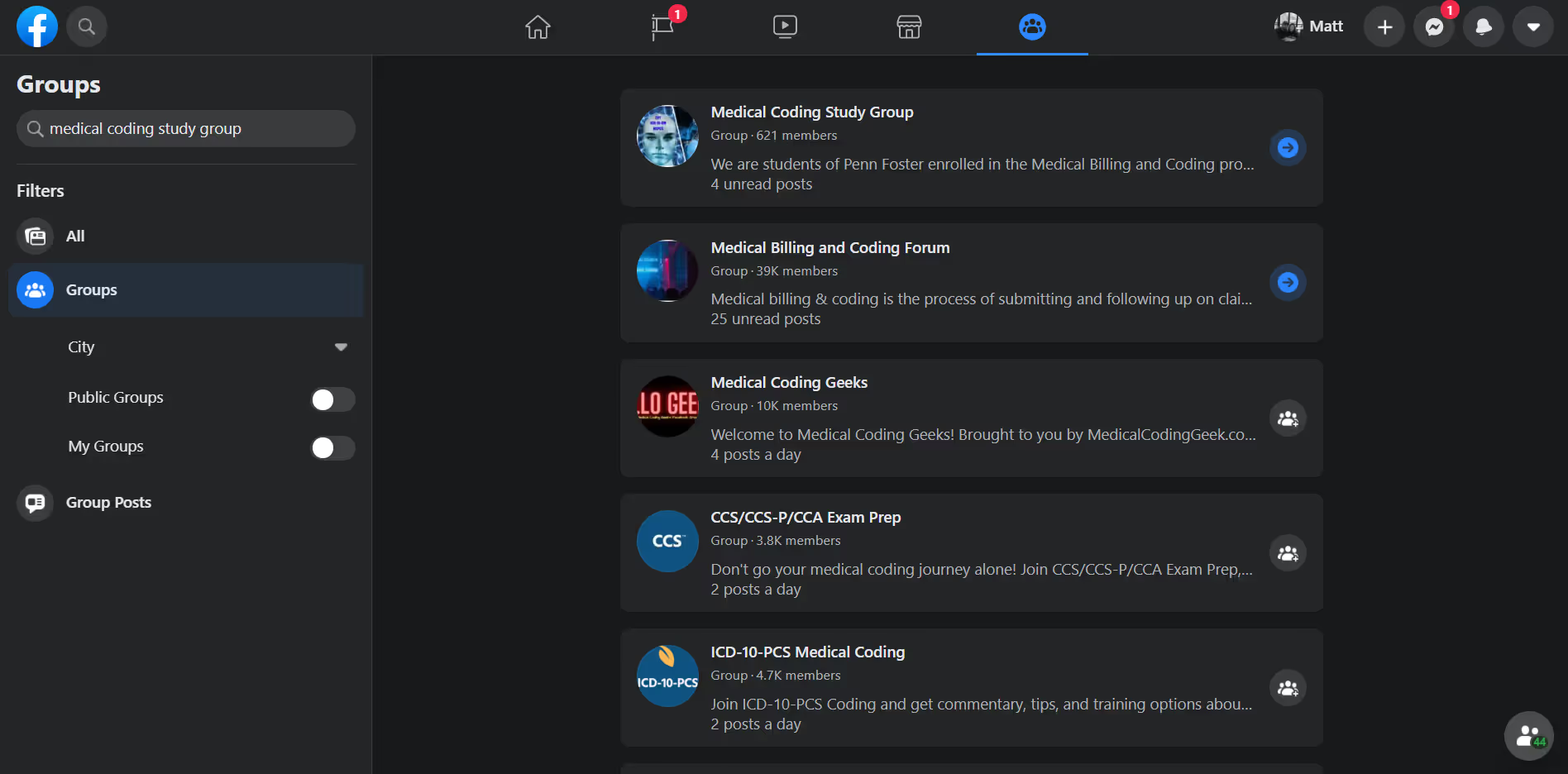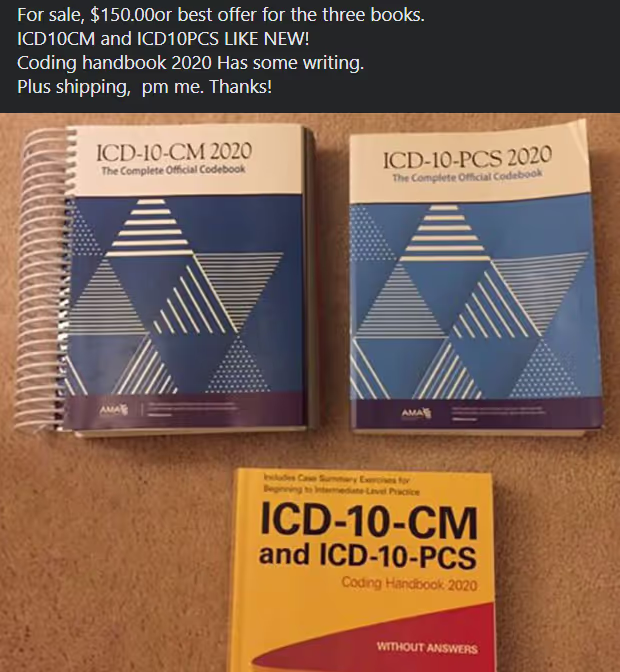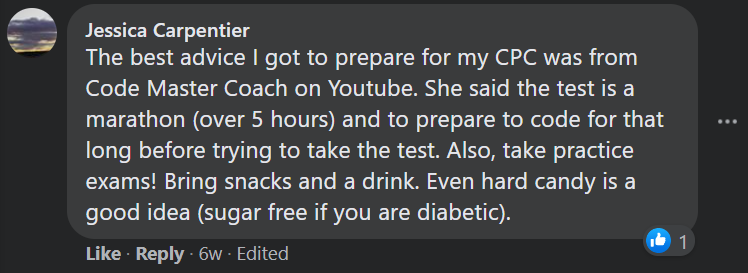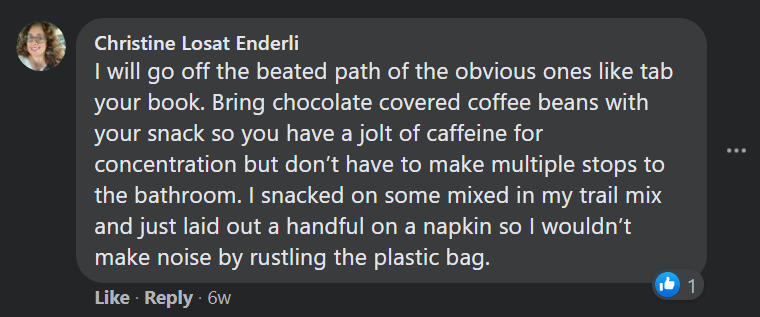Medical Coding Exam: Prep and Tips From Certified Coders
We asked certified coders for their biggest tips in preparation for medical coding exams.

If you’re reading this blog post, then you already know that medical coding careers aren’t going anywhere, anytime soon. They’re an elite bunch of individuals that work in the background of the healthcare landscape, working for both organizations and the patients that visit.
They don’t need to be in the limelight because they know that what they do is at the heart of this industry and they help keep it pumping.
You’ve probably also done your research prior to deciding that this career is your calling. Of course, you’re also comfortable with the salary that’s waiting for you once you’re ordained as a professional coder.
Before all of that happens, though, you have one last hurdle to overcome. You have to pass a medical coding exam.
I purposefully put the word “a” there instead of “the” because there are multiple routes you could go.
If you’re just starting out then you’re probably preparing for one of the following exams…
- Certified Professional Coder (CPC)
- Certified Coding Specialist (CCS)
- Certified Medical Coder (CMC)
Maybe you’ve already achieved one of those entry-level certifications and are at a point in your career where you’ve decided it’s time to specialize. If that’s the case then you’re studying for…
- Certified Outpaint Coder (COC)
- Certified Inpatient Coder (CIC)
- Certified Professional Coder-Payer (CPC-P)
- Certified Risk Adjustment Coder (CRC)
My point after all of this isn’t to make you feel nervous because of all the testing involved in your career choice. There are many exciting avenues to head down to further boost your success.

Regardless of which stage of this career you’re at, there’s always room for improvement in your test-taking skills. Even if you’re a master test-taker, it doesn’t hurt to research what to expect for preparation’s sake.
Regardless of what side of that coin you’re on, we asked certified coders for their biggest tips in preparation for medical coding exams.
Tip #1: Purchase a Study Guide
The first couple of tips within this blog post deal with steps you should take prior to exam day. What happens prior to that big day? Studying.
The only way to pass any test, especially one that’s as comprehensive as any of the ones relevant to your career choice is to study. Not to mention you have to pay to take them, so you might as well come prepared.
I don’t need to throw in some statistics proving that statement above, it’s obvious that if you study you’ll perform better. Some people might still need to hear that, though.
It’s no secret that these tests are very comprehensive. After all, the majority of them take an entire afternoon to complete.
Where do you start? It’s not like the AAPC gives you a study guide with all of the answers like your old History teachers used to do back in high school. At least, not without paying extra.
Sure, each of the proctoring organizations provide some downloadable resources directly on their exam webpages. But, oftentimes, these are too vague to rely on to fully prepare yourself.

As a result, you really have no other choice but to purchase an official study guide textbook for the exam you’re taking. A lot of the testing organizations offer bundles that include the entry-fee and their study guide books. Since it’s from the official site, these are great resources that you shouldn’t overlook.

If you know someone who recently took the test you’re about to take and no longer needs the resources they used to pass, you could always try to borrow them to save money. But, the chances of that aren’t very high.
However, there’s a lesser-known alternative if you don’t know someone who’s already passed; Facebook Groups. There are multiple different Facebook Groups out there with the sole purpose of helping people pass their medical coding exams.

Oftentimes people within those groups will offer their study guides once they no longer have a use for them. They won’t give them to you for free but they’ll ask for a reasonable price.
Sure, they’ll probably come with some bent corners, coffee stains and highlighter marks but those might actually help you study as it did for them.

If you’re worried about costs, try joining some of these groups and see if you can get lucky.
Tip #2: Dont' Be Afraid to Look for Outside Help
When Youtube first started out way back in 2005, I don’t think anyone foresaw how helpful it could be in education. From raw lecture videos to animated shorts, there are hundreds of thousands of hours of educational content on the video juggernaut free to consume.
The pessimist would say that medical coding is too niche of a topic for there to be any educational content about it from Youtube. That assumption is wrong.

There’s so much helpful content about preparing you for these exams that some of the certified coders who answered our question recommended channels.
Specifically, they mentioned the channel, Code Master Coach.
Her channel has more than 48,000 subscribers, 200 videos and is over 4 years old. Code Master Coach’s sole purpose is to share the knowledge and expertise she’s gained over the course of her 28-year medical coding career.
OK, sure, maybe you’re game to watch some of her videos as a part of your preparation. If the average length of her videos were 10 minutes long, it would take you 83 days to get through all of that content. That’s time most of us don’t have.
So how do you prioritize which videos to watch? The answer is simple; sort her videos by “most viewed”.
The truth is, you’re not the only person savvy enough to use Youtube to your advantage in your test preparation. The “type” of videos that Code Master Coach creates falls under “Educational” and/or “How-to”. These two categories happen to be two of the most popular categories on Youtube.

As a result, other people in a similar situation are trying to figure out…
- What certification should they go for?
- Which study guide should they purchase?
- What in the world is a Z code?
- Are there any “secrets to success” to keep in mind during test day?
Luckily for you and them, Code Master Coach has videos that answer each of those questions. They also all happen to land at the top of her channel’s most-watched videos.
Tip #3: Don't Overthink The Questions
Everyone’s experienced the scenario I’m about to describe to you at some point during their education.
You’ve spent weeks studying for your exam, putting in hours both during the day and at night.
Test day arrives, you’re well-rested and ready to take on the behemoth that stands before you. You’ve got a cool head.
Then, you get to the first question and it catches you completely off-guard. You have no idea what the answer is and start to overthink. When this happens, how detrimental is it to your confidence?
What ends up happening is you’ll go through the rest of the test with a low morale, all because of one question. As a result, you overanalyze everything that’s asked and every answer that’s available to choose from.
If this happens during your medical coding exam, you can’t let it weigh on you. If you let it overshadow your confidence, you’ll end up thinking that everything on the test is a trick question. That’s simply not the case with these exams, according to the certified coders we asked.

If you take every question as it comes and keep a cool head, you won’t slip up and overthink what they’re asking you.
According to Dr. Timothy Coppock, “Anxious over-thinking can result in missed deadlines, impaired decision making, and disrupt professional performance.”
Regardless of the medical coding exam you’re taking, it has a time limit associated with it. Thus, you’ll have to keep a certain pace while you’re working through it or you won’t finish in time. If you overthink every question that’s in front of you, you’ll also have a hard time finishing within the time that’s allotted.
If you keep pace, answer each question as they come and don’t second guess each question you’ll be cruising at the rate you need to.
That doesn’t mean you can’t go back and review the test once you’re complete.
There’s a common misconception in test-taking where people think the answer they choose in their first go-around is the correct choice. A study conducted over the course of 70 years found that people who change their answers perform better than those who don’t.
Don’t be afraid to select or change your selections, just don’t overthink it.
Tip #4: Bring Snacks
Spending an entire morning or afternoon devoted to one of these exams isn’t easy on your body. Look at it this way, the average workday is 8 hours long, 4 hours in the morning and 4 hours in the afternoon. In between, there’s time allotted for 30 minute to 1 hour-long lunch.
Some of these exams take up to five hours long. That’s 1 hour over a standard workday’s “shifts”.
My point after all of this is that you’re going to get hungry.

Snacks were a huge topic for multiple certified coders because of the reason I already stated; it’s a long test. Thus, having them could make a difference in your success. According to a Canadian study, thinking causes fluctuations in your glucose and insulin levels which makes you hungry.
Now, that doesn’t mean you should bring a full meal along with you, unpack it at question 50 and start a one-person all you can eat buffet. That would not only get messy but also disturb those around you, which isn’t a good idea.
Smaller snacks that don’t make a lot of noise are the perfect option. Furthermore, you should also bring a bottle of water with you. A European study found that people who bring water with them into an exam perform at least 5% better than those who don’t.
Tip #5: Use a Strategy You're Comfortable With
Everyone has their own way of taking tests, these are generally habits we picked up from grade school that stay with us all the way through high school and beyond.

I bet once the day comes to take your medical coding exam you’ll find that you end up returning to your old strategies. That’s OK, as long as you’re comfortable with them and they’re productive.
A lot of the professionals we asked had different suggestions and techniques that worked for them. A common denominator with all of them, though, was to ensure that you don’t leave anything blank.
“Don’t leave your answers blank,” is a phrase we’ve all probably heard at some point during our schooling. Back in the day, our teachers would tell us that because even if they were short answer questions they would likely still give us partial credit, even if we were wrong (thank you, Mrs. Johnson).
But this is an even more powerful strategy when it comes to your medical coding exam because it’s all multiple choice. In other words, you have a 25% chance to get the question right if you guess. Those are great odds.
Of course, you could still try a totally new strategy than what you normally do when taking tests. Just start practicing it while you're studying ahead of time, that way you won’t fall into old habits when the day comes.
Conclusion
It doesn’t matter which medical coding exam you take, they’re all difficult in their own way.
You could have two credentials going for your third or a newcomer trying to get into the industry, either way, it’s helpful to refresh yourself with new strategies, what to expect and what to bring.
What better way to prepare for your exam than by hearing tips from actual, certified coders?
I’m not saying you need to take their ideas to heart, they’re just giving advice based on what worked for them. Maybe next time we look for tips about these exams, we’ll feature you here too.
Emphasize your product's unique features or benefits to differentiate it from competitors
In nec dictum adipiscing pharetra enim etiam scelerisque dolor purus ipsum egestas cursus vulputate arcu egestas ut eu sed mollis consectetur mattis pharetra curabitur et maecenas in mattis fames consectetur ipsum quis risus mauris aliquam ornare nisl purus at ipsum nulla accumsan consectetur vestibulum suspendisse aliquam condimentum scelerisque lacinia pellentesque vestibulum condimentum turpis ligula pharetra dictum sapien facilisis sapien at sagittis et cursus congue.
- Pharetra curabitur et maecenas in mattis fames consectetur ipsum quis risus.
- Justo urna nisi auctor consequat consectetur dolor lectus blandit.
- Eget egestas volutpat lacinia vestibulum vitae mattis hendrerit.
- Ornare elit odio tellus orci bibendum dictum id sem congue enim amet diam.
Incorporate statistics or specific numbers to highlight the effectiveness or popularity of your offering
Convallis pellentesque ullamcorper sapien sed tristique fermentum proin amet quam tincidunt feugiat vitae neque quisque odio ut pellentesque ac mauris eget lectus. Pretium arcu turpis lacus sapien sit at eu sapien duis magna nunc nibh nam non ut nibh ultrices ultrices elementum egestas enim nisl sed cursus pellentesque sit dignissim enim euismod sit et convallis sed pelis viverra quam at nisl sit pharetra enim nisl nec vestibulum posuere in volutpat sed blandit neque risus.

Use time-sensitive language to encourage immediate action, such as "Limited Time Offer
Feugiat vitae neque quisque odio ut pellentesque ac mauris eget lectus. Pretium arcu turpis lacus sapien sit at eu sapien duis magna nunc nibh nam non ut nibh ultrices ultrices elementum egestas enim nisl sed cursus pellentesque sit dignissim enim euismod sit et convallis sed pelis viverra quam at nisl sit pharetra enim nisl nec vestibulum posuere in volutpat sed blandit neque risus.
- Pharetra curabitur et maecenas in mattis fames consectetur ipsum quis risus.
- Justo urna nisi auctor consequat consectetur dolor lectus blandit.
- Eget egestas volutpat lacinia vestibulum vitae mattis hendrerit.
- Ornare elit odio tellus orci bibendum dictum id sem congue enim amet diam.
Address customer pain points directly by showing how your product solves their problems
Feugiat vitae neque quisque odio ut pellentesque ac mauris eget lectus. Pretium arcu turpis lacus sapien sit at eu sapien duis magna nunc nibh nam non ut nibh ultrices ultrices elementum egestas enim nisl sed cursus pellentesque sit dignissim enim euismod sit et convallis sed pelis viverra quam at nisl sit pharetra enim nisl nec vestibulum posuere in volutpat sed blandit neque risus.
Vel etiam vel amet aenean eget in habitasse nunc duis tellus sem turpis risus aliquam ac volutpat tellus eu faucibus ullamcorper.
Tailor titles to your ideal customer segment using phrases like "Designed for Busy Professionals
Sed pretium id nibh id sit felis vitae volutpat volutpat adipiscing at sodales neque lectus mi phasellus commodo at elit suspendisse ornare faucibus lectus purus viverra in nec aliquet commodo et sed sed nisi tempor mi pellentesque arcu viverra pretium duis enim vulputate dignissim etiam ultrices vitae neque urna proin nibh diam turpis augue lacus.




